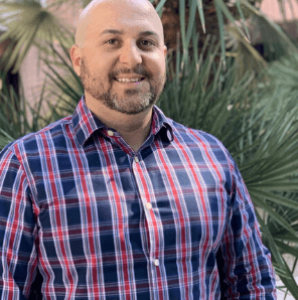
Brad Zehring, D.O.
Board Certified Psychiatrist and Eating Disorders Specialist
Founder of Zehring Clinic
What is your current position?
I have a couple positions right now. I only see patients with eating disorders and I see them in the outpatient setting through my private practice and I see them in residential (RTC) , partial hospitalization (PHP), and intensive outpatient (IOP) at Alsana: An Eating Recovery Community. My private practice has patients from a mixture of states. I am currently licensed in 20 different states and work closely with therapist, dietitians, and primary care physicians of the patients we share. I provide expert psychiatric care for patients with eating disorders and I value working as a team in the outpatient arena. At Alsana, I see patients in Santa Barbara, California at the RTC/PHP/IOP levels of care and see people nationally through our virtual IOP/PHP programs. Additionally, I am the National Director of Psychiatry for Alsana where I am responsible for shaping the psychiatric culture within Alsana across all sites.
How did you get started in your career?
I always knew I wanted to be a physician, but I didn’t ever think I would be a psychiatrist. I just didn’t know enough about it. Through some personal experiences Psychiatry, and of course eating disorders, was where my passion was from the start. Through psychiatry residency I began to learn everything I could about eating disorders. I was fortunate to link up with some very experienced and knowledgeable people in the field who have been very gracious to mentor me and root me on.
What advice would you give to someone new to the field?
In my opinion, there is not any patient population more rewarding than taking care of patients with eating disorders. They are intelligent, driven, funny, quick witted, goal oriented, resilient, courageous. They are also hurting, confused, lost to their purpose or identity at times, and looking for support, understanding, and looking for those that will walk the journey with them. My advice is to be humble. These patients will teach you so much if you listen to them – if you are willing to admit you don’t have it all figured out. Along those same lines, ask questions and seek out seasoned clinicians in the field. Our learning should never be done. There is so much more to learn about eating disorders and the best treatment for them. We owe it to the field of eating disorders, and the patients, to knock down every door until we can provide optimal, effective treatment for every person.
